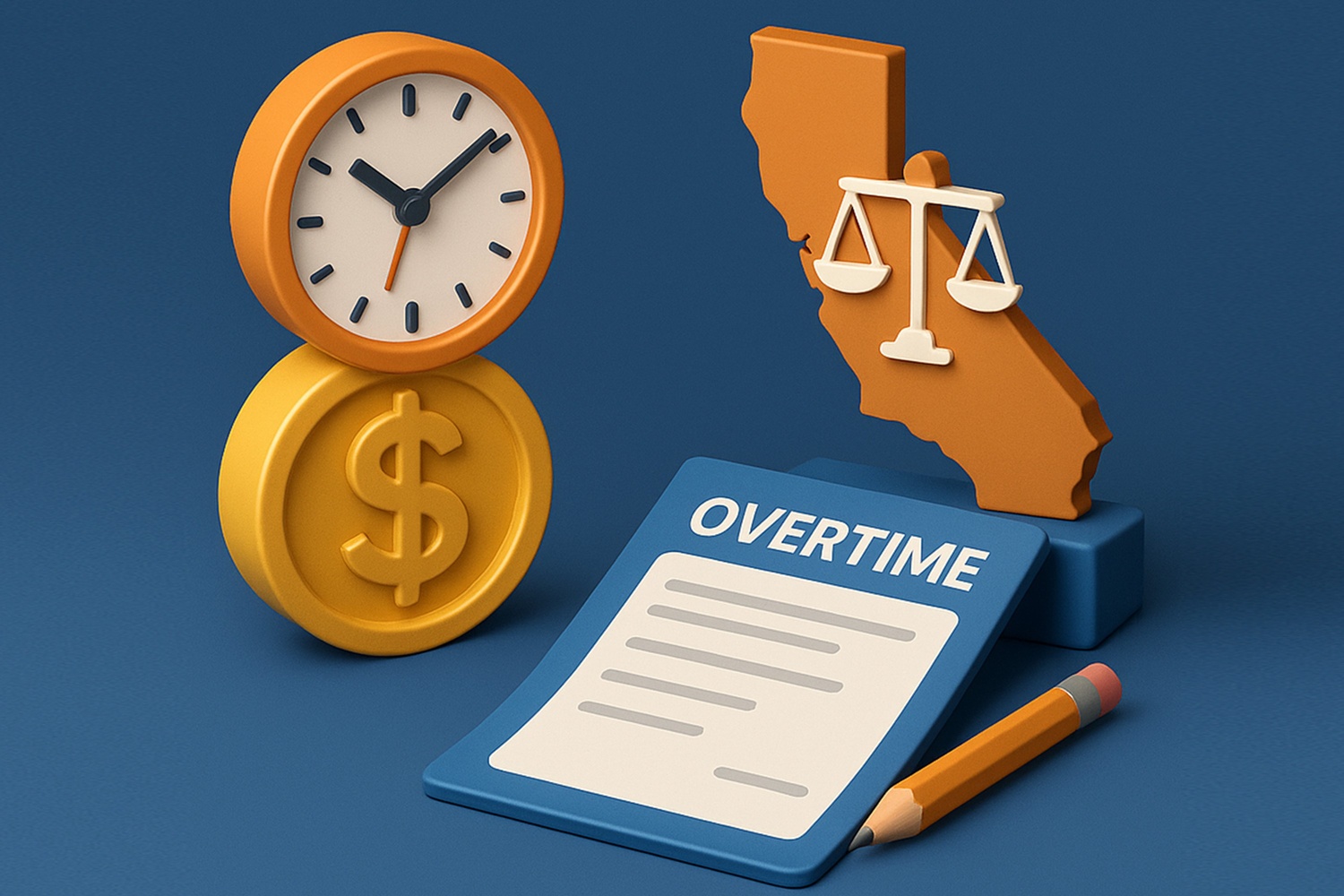
Overtime is important because it makes sure workers get paid fairly for any extra hours they work beyond the regular workweek. California, by enforcing very serious laws regarding overtime, must be unquestionably committed to protecting workers' rights. Both employers and employees must understand the regulations and exemptions of overtime compensation. This blog will discuss the importance of overtime pay, the specific California laws, and any exemptions that may apply.
Overtime pay serves functions that, combined, set into motion a fair and balanced working atmosphere:
California overtime rules are broader than federal law, providing greater protection for employees. Some of the key rules are below:
Eligibility to receive compensation for overtime work applies to seven consecutive days of work within a week. On the seventh day, one and one-half times pay applies to all hours worked before the end of the first 8 working hours, whereas all hours more than 8 hours are subject to double time.
Alternative workweeks, like four 10-hour days, can be substituted by employers as long as two-thirds of the impacted employees agree to the change. Only hours done above the established timetable require overtime compensation.
The (regular rate) includes commissions, piece rates, and non-discretionary bonuses. To prevent underpayment of overtime compensation, employers must accurately determine the regular rate.
While California's overtime laws are comprehensive, there are several exceptions and exemptions based on specific job roles and industries:
Some employees are overtime exempt and comprise:
An employee covered by a valid CBA may have provisions for overtime that differ from those in state overtime laws. Some CBAs negotiated terms that supersede state overtime laws, as long as they meet minimum requirements.
Employees who are part of a union may have different overtime rules stipulated in their union contracts. These agreements can sometimes override state laws if they provide comparable or superior benefits.
Certain industries have unique overtime regulations. For example:
Employers must ensure compliance with overtime laws to uphold a good atmosphere for work and to avoid penalties. The steps that the employers should ensure are as follows:
Employees are also allowed to report their concerns or suspicions to the California Division of Labor Standards Enforcement (DLSE) if they suspect that overtime rights have been infringed upon. DLSE analyzes the complaints and has the power to punish employers for violating overtime laws.
Overtime compensation is an important right of employees guaranteed by law, and it goes a long way in determining the extent to which employees are compensated fairly. California overtime laws give considerable protection to workers, but limit this protection based on certain industries and duties. These laws are important for employers and employees so that they can fully comply and generate a productive work environment.
Keeping on top of overtime regulations will thus help employers ensure improved morale for their employees and, therefore, will increase the workforce's financial health. Knowing the importance of overtime in California is indispensable to a good and productive workplace, regardless of whether you are an employee seeking fair recompense for your labor or an employer trying to find your way through the complexity of payroll.
© Copyright PAYPRONEXT. 2025, All Rights Reserved.